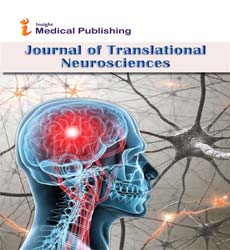Developmental Neuroscience: Unraveling the Complex Journey of Brain Development
Olive stone
Department of Psychological and Brain Sciences, Boston University, Boston, USA
Published Date: 2023-06-26DOI10.36648/2573-5349.8.2.005
Olive stone*
Department of Psychological and Brain Sciences, Boston University, Boston, USA
- *Corresponding Author:
- Olive stone
Department of Psychological and Brain Sciences,
Boston University, Boston,
USA,
Email: olivestone45@gmail.com
Received date: May 16, 2023, Manuscript No. IPNBT-23-17385; Editor assigned date: May 19, 2023, PreQC No. IPNBT-23-17385(PQ); Reviewed date: June 02, 2023, QC No IPNBT-23-17385; Revised date: June 15, 2023, Manuscript No. IPNBT-23-17385 (R); Published date: June 26, 2023, DOI: 10.36648/2573-5349.8.2.005
Citation: Olive stone (2023) Developmental Neuroscience: Unraveling the Complex Journey of Brain Development. J Transl Neurosc Vol. 8 Iss No. 2:005
Introduction
Developmental neuroscience is a multidisciplinary field that investigates the intricate processes and mechanisms underlying the formation and maturation of the nervous system. It encompasses the study of cellular and molecular events, genetic factors, and environmental influences that shape the developing brain. This research article provides a comprehensive overview of developmental neuroscience, highlighting key stages of brain development, cellular processes involved, and critical factors influencing neurodevelopmental outcomes. Additionally, we discuss recent advancements in the field and their implications for understanding neurodevelopmental disorders. Through this exploration, we aim to enhance our understanding of the complex journey of brain development and its implications for human health. Developmental neuroscience is a field that focuses on unraveling the intricate processes underlying the formation and maturation of the nervous system. The developing brain undergoes a series of complex events that shape its structure and function, ultimately determining cognitive, emotional, and behavioral outcomes. This article provides an in-depth understanding of developmental neuroscience by exploring key stages of brain development, cellular processes involved, and critical factors influencing neurodevelopmental outcomes.
Cellular Processes in Brain Development
Brain development occurs in a highly orchestrated manner, involving a sequence of distinct stages. We discuss the major stages of brain development, including neurogenesis, cell migration, neuronal differentiation, synaptogenesis, and pruning. Each stage contributes to the establishment of neural circuits and the refinement of neural connections. Cellular processes play a crucial role in brain development. This section explores the cellular events involved, including cell proliferation, migration, and differentiation. We discuss the importance of neural stem cells and progenitor cells in generating the diverse array of cell types found in the mature brain. Additionally, we explore the role of glial cells in providing support and guidance during brain development. Genetic factors significantly influence brain development. This section delves into the genetic mechanisms that regulate neurodevelopmental processes, including the role of transcription factors, signaling pathways, and epigenetic modifications. We also discuss the impact of genetic mutations and variations on neurodevelopmental outcomes, highlighting their association with neurodevelopmental disorders. The developing brain is highly sensitive to environmental influences. This section explores the impact of prenatal and postnatal factors on neurodevelopment, including maternal factors, exposure to toxins, nutrition, and socioemotional experiences. We discuss the concept of neuroplasticity and how environmental factors can shape brain development and contribute to individual differences in cognitive and behavioral outcomes.
Recent Advances in Developmental Neuroscience
Understanding the principles of developmental neuroscience is crucial for unraveling the underlying causes of neurodevelopmental disorders. This section highlights common neurodevelopmental disorders, such as autism spectrum disorder, attention-deficit/hyperactivity disorder, and intellectual disability. We discuss the current understanding of the etiology, neural mechanisms, and potential therapeutic interventions for these disorders. Advancements in technology and research methodologies have expanded our knowledge of developmental neuroscience. This section explores recent breakthroughs, including the use of stem cell models to study neurodevelopmental processes, the application of advanced imaging techniques to visualize brain development in vivo, and the integration of genomic approaches to identify novel genes associated with neurodevelopmental disorders. Developmental neuroscience plays a critical role in unraveling the complex journey of brain development. This research article has provided an overview of key stages of brain development, cellular processes involved, and critical factors influencing neurodevelopmental outcomes. By expanding our understanding of developmental neuroscience, we can gain insights into the etiology and mechanisms underlying neurodevelopmental disorders, ultimately paving the way for improved diagnostic methods and therapeutic interventions.
Open Access Journals
- Aquaculture & Veterinary Science
- Chemistry & Chemical Sciences
- Clinical Sciences
- Engineering
- General Science
- Genetics & Molecular Biology
- Health Care & Nursing
- Immunology & Microbiology
- Materials Science
- Mathematics & Physics
- Medical Sciences
- Neurology & Psychiatry
- Oncology & Cancer Science
- Pharmaceutical Sciences
